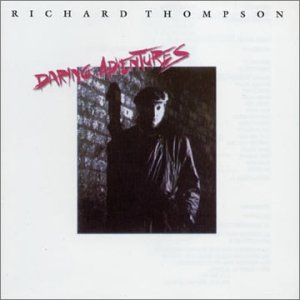
- Format: FLAC

In 1986, Richard Thompson and his record label of the moment, Polydor, were eager to expand his audience, so Thompson parted ways with his long-time producer Joe Boyd and went into the studio with producer and keyboard player Mitchell Froom. While Froom's approach was noticeably different than Boyd's, he displayed an obvious respect for Thompson's gifts, and though Daring Adventures boasts a bit more aural sheen than the albums that preceded it, Richard Thompson's style as a guitarist and songwriter still shines through clear as day. Froom replaced Thompson's usual rhythm section with top-shelf session players Jerry Scheff on bass and Mickey Curry on drums (Jim Keltner sits on three cuts), and if their style is less idiosyncratic than that of Dave Pegg and Dave Mattacks, they match the material far better than Willie Weeks and Andy Newmark did on First Light. And Froom kept his fondness for tape-loop keyboards and eccentric signal processing in check, giving the sessions an enjoyably warm, organic sound. If Daring Adventures has a flaw, it's the songs; while Thompson, as usual, has a handful of gems on board (among them the joyous near-rockabilly of "Valerie," the disquietingly atmospheric "Lover's Lane," and the two heart-rending tales of life during and after wartime that close the album, "How Will I Ever Be Simple Again" and "Al Bowlly's In Heaven"), there are also a few that don't go anywhere, and "Baby Talk" and "Dead Man's Handle" could have been left on the cutting room floor without disappointing anyone. If you're not familiar with Richard Thompson's music, you'll doubtless find that Daring Adventures has great songs played by a great band, with an amazing guitar player up front. But if you've already heard most of his records, you'll know he can do better.